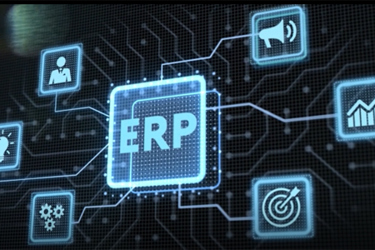Pharma Enterprise Resource Planning: From Automation To AI-Driven Insights
By Md Akram Hossain

In an industry where speed and precision can determine the success of lifesaving therapies, pharmaceutical firms are increasingly turning to enterprise resource planning (ERP) systems to modernize operations. These platforms unify core functions, including supply chain management, manufacturing, and financial planning and analysis (FP&A), providing teams with real-time data visibility, regulatory control, and enhanced agility.
Below, we examine five key areas where ERP systems are transforming pharmaceutical operations and delivering impactful results.
1. Improved Agility And Risk Management
Traditional supply chains, which are often heavily dependent on fragmented systems and manual coordination, struggled to adapt during recent global disruptions. In contrast, cloud-based ERP platforms now enable pharmaceutical firms to model various scenarios, reallocate resources, and respond more quickly when conditions change. For example, when a major supplier shutdown occurred during the pandemic, one organization was able to use its cloud-based ERP and EPM (enterprise performance management) systems’ scenario modeling tools to simulate alternative sourcing plans and avoid production delays.
ERP systems offer built-in analytics that help firms detect early warning signs, such as inventory discrepancies or vendor delays, enabling timely course correction. With this agility, pharma teams are better positioned to navigate uncertainty and maintain business continuity.
2. Cost Savings And Operational Efficiency
Manual workflows across inventory, procurement, and production can result in costly human errors and delays in production schedules. ERP platforms automate key workflows, such as batch traceability, procurement approvals, and milestone reporting.
In one of the enterprise implementation rollouts I led, ERP’s real-time inventory tracking feature enabled supply chain teams to achieve 30 percent reduction in stock discrepancies through centralized inventory tracking across multiple global sites. Another organization I worked with used ERP to automate purchase order approval workflows, reducing procurement cycle times and eliminating manual handoffs that delayed development.
Automating these systems doesn't just improve speed; it helps in cost savings long term and frees teams to focus on strategic decisions instead of manual data entry and trying to rectify possible human errors.
3. Stronger Compliance And Governance
GMP standards require rigorous documentation, quality checks, and traceability at every step of production. ERP platforms like SAP S/4HANA and Oracle’s Life Sciences ERP integrate quality management modules directly into production workflows, automating alerts when deviations occur and logging audit-ready records.
By embedding compliance into the day-to-day operations, pharma companies minimize regulatory risk and improve response time during inspections or recalls. In a healthcare implementation I supported, automating quality control workflows enhanced audit preparation time by 40 percent while improving overall data integrity and ensuring transparency across teams.
This kind of integration ensures GMP protocols are followed consistently and reduces the burden on QA teams to manually police compliance.
4. Scalability For Growth
As pharma and healthcare companies grow and expand their operations internationally, the complexity of managing product lines, manufacturing volume, and new market regulations increases. ERP systems, particularly modular cloud-based platforms, scale as the business evolves, without the need for major infrastructure overhauls.
I’ve seen this firsthand when supporting a client comply with specific market regulations in Asia and Europe to expand operations. By configuring localized compliance modules within their global ERP framework, they were able to launch operations in new countries while maintaining consistent controls and governance.
ERP’s modular architecture also enables teams to build or update specific capabilities incrementally, like supplier onboarding or real-time inventory monitoring, without disrupting the entire system or integrating localized supplier systems from scratch. This can translate into operational savings for organizations as it significantly reduces the need for costly infrastructure upgrades.
5. Enhanced Collaboration And Transparency
ERP systems provide a single source of truth, enabling teams to operate with unified data, enhancing cross-functional collaboration. Whether it’s finance, operations, or compliance, everyone works from the same set of real-time metrics.
This transparency accelerates decision-making. For example, using a centralized ERP dashboard, one client’s finance and supply chain stakeholders were able to flag a budget overspend mid-quarter and collaboratively adjust forecasts to stay within margin goals — something previously impossible due to disconnected reporting systems.
When collaboration is supported by shared data and automated workflows, pharma teams operate more cohesively and confidently.
What’s Next For ERP: Game-Changing Artificial Intelligence Integration
As ERP platforms evolve to include artificial intelligence and predictive analytics, the future of pharmaceutical operations is becoming genuinely exciting. These next-generation systems will empower teams with proactive capabilities, like AI-powered demand planning that anticipates market shifts and intelligent alerts that flag financial anomalies before they escalate. Far from being just back office tools, modern ERP solutions are becoming strategic engines that drive faster, smarter, and more confident decision-making across the entire organization.
In my experience, organizations that approach ERP modernization as a continuous, modular evolution, rather than a one-time overhaul, position themselves to lead. They innovate faster, navigate regulatory complexity with less friction, and scale more effectively in global markets.
About The Author:
 Md Akram Hossain is an accomplished product management and business analysis leader with over nine years of experience driving enterprisewide digital transformations across pharma and healthcare, supply chain, finance, and technology. An MBA, Advanced Certified Scrum Product Owner (A-CSPO), and Certified Business Analysis Professional (CBAP), Akram specializes in EPM, ERP, and EHR systems, with deep expertise in platforms such as Anaplan, Workday, PeopleSoft, SAP, and Epic.
Md Akram Hossain is an accomplished product management and business analysis leader with over nine years of experience driving enterprisewide digital transformations across pharma and healthcare, supply chain, finance, and technology. An MBA, Advanced Certified Scrum Product Owner (A-CSPO), and Certified Business Analysis Professional (CBAP), Akram specializes in EPM, ERP, and EHR systems, with deep expertise in platforms such as Anaplan, Workday, PeopleSoft, SAP, and Epic.
